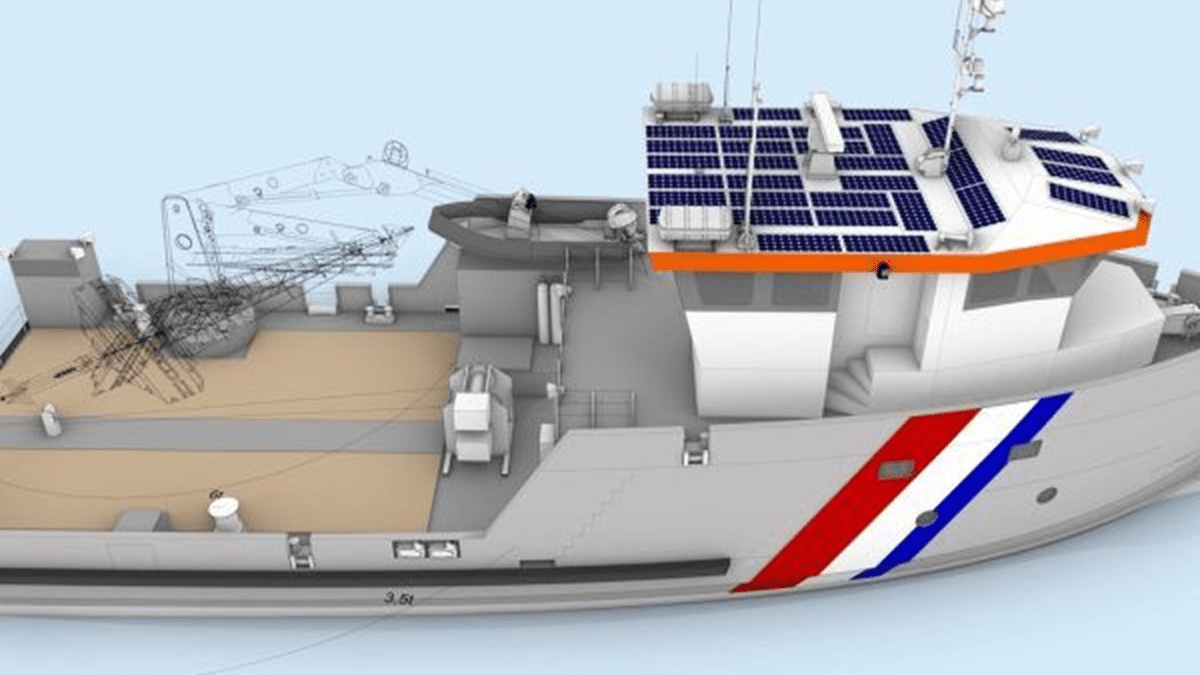 Two electric motors will be powered by 150-kWh batteries, allowing the boat to be fully electrically propelled for short periods (source: Danfoss)
Two electric motors will be powered by 150-kWh batteries, allowing the boat to be fully electrically propelled for short periods (source: Danfoss)
Danfoss’ Editron division will deliver the electric drivetrain system for the French marine department’s navigational safety vessel
The Editron division will equip the buoy-laying workboat with two electric motors, allowing it to occasionally run on zero-emissions electric propulsion and resulting in fuel savings of 25% to 30% compared with a conventional diesel-driven vessel.
The two electric motors will be powered by 150-kWh batteries, allowing the boat to be fully electrically propelled for short periods. In addition, the energy stored in the battery packs can be used to boost the hotel load when more power is required, increasing efficiency and allowing the power of the electric motor to be minimised when operating on generators.
To further minimise its environmental footprint, the ship will also use solar panels. ECCS Marine will carry out the electric system design and integration of the 24-m vessel.
In addition to the Editron motors, the vessel will have two Volvo D16 IMO Tier III engines equipped with particle filters driving two variable-pitch propellers.
The vessel will be used to maintain and replace navigational buoys around the island of Corsica operating in the Armement des Phares et Balises, the French governmental department responsible for monitoring signalling dangers and marking shipping routes along its coast.
The ship will also be equipped with a 35-tonne crane and several winches to manoeuvre the buoys, as well as a dynamic positioning system allowing the Armament des Phares et Balises crews to carry out missions with the greatest possible precision and safety.
ECCS project engineer Peter Enjalbert said, “The buoy-laying vessel will be regularly entering and leaving ports and sailing across Corsica maritime protected areas, so it is important greenhouse gas emissions and noise pollution are kept to a minimum – something the Editron division was able to ensure with its propulsion system. This project has demonstrated that a totally electrified marine industry is within reach, so we hope this electric vessel will be the first of many for this fleet.”
The Merré and CIB shipyards are currently building the vessel at production facilities in Nort-Sur-Erdre and Brest, France. The ship is set to be delivered mid-2023.
The commissioning of the new vessel is part of the French Government’s efforts to decarbonise France’s marine industry





